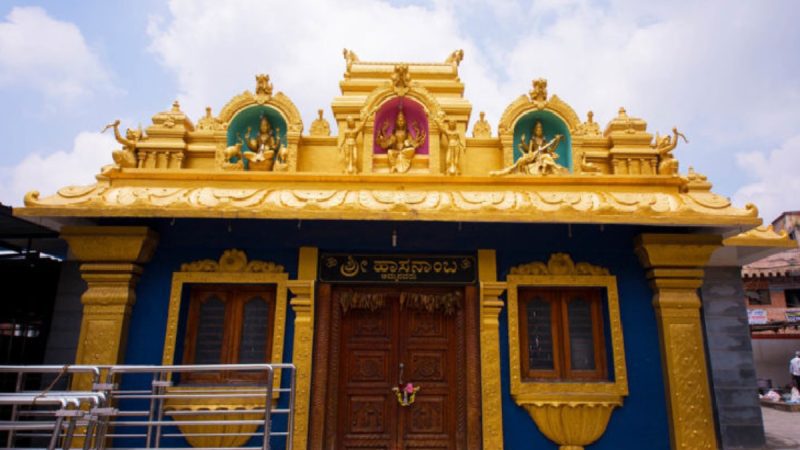There is a temple in the town of Hassan in Karnataka that seems to be frozen in time. It’s called the Hasanamba Temple, and unlike any other temple in India, its doors open only once a year, during the festival of Deepavali. For the rest of the year, it remains locked. However, something extraordinary occurs inside that has awed followers for centuries.
Karnataka’s Hasanamba Temple Opens Only During Deepavali
When the doors of the Hasanamba Temple finally open, people from across Karnataka and beyond rush to witness the sight of their beloved Goddess Hasanamba, a powerful form of Shakti — the Mother Goddess. Her name means “Smiling Mother of Hassan,” and locals believe she watches over the town like a gentle guardian all year long.
But here’s what makes this temple so special: even though it remains closed for an entire year, when the priests reopen it during Deepavali, they find that the lamp left burning the previous year still glows brightly, the flowers remain fresh, and the rice offerings stay warm and unspoiled. A miracle in the true sense, it shows that the goddess herself is actually inside, guarding and kindly assisting her followers.
Built in the 12th century Hasanamba Temple by the Hoysala dynasty, renowned for its magnificent temple architecture, doesn’t house any typical idols inside. Instead, an anthill is used to represent the goddess, which is believed to be a living representation of her divine energy. One of the most intriguing carvings here depicts Ravana playing a veena, but surprisingly, it has nine heads rather than ten.
The Legends That Surround The Temple
The legends surrounding this temple are just as captivating as the actual location. A popular legend states that the seven Sapta Matrikas, or divine mothers, were once migrating south from Varanasi. When they first arrived, Hassan’s beauty enchanted them, and they decided to stay. Three of them, Maheshwari, Kaumari, and Vaishnavi, settled inside anthills within this temple, and that’s how Hasanamba came to be worshipped here.
Another legend tells the story of a devotee’s daughter-in-law who was mistreated by her mother-in-law. When the young woman came to pray to the goddess and called out for help, Hasanamba turned her into a stone to protect her. This stone, known as Sose Kallu, still lies in the temple, and people say it moves a tiny bit closer to the goddess every year. When it finally touches her, it is said that the Kali Yuga (the present era) will come to an end.
The most magical time to visit Hassan is during Deepavali, when the temple opens. This usually happens on the Thursday following the full moon in the month of Ashwija (October or November). The temple then remains open for a few days until Bali Padyami, the day after Deepavali. During this short period, thousands of devotees gather for darshan (holy viewing) of the goddess.
This town in Karnataka comes alive with colour, music, and devotion during the grand fair known as Ravanotsava, held in honour of Lord Siddeshwara Swamy. Visiting Hasanamba Temple can stir strong emotions in you even if you’re not particularly religious.
If you ever find yourself in Karnataka during Deepavali, you should definitely go to Hassan. The temple is only open once a year, but for those few days, it becomes a living symbol of devotion.
Cover Image Courtesy: Hassan District/Website
For more such snackable content, interesting discoveries and the latest updates on food, travel and experiences in your city, download the Curly Tales App. Download HERE.

